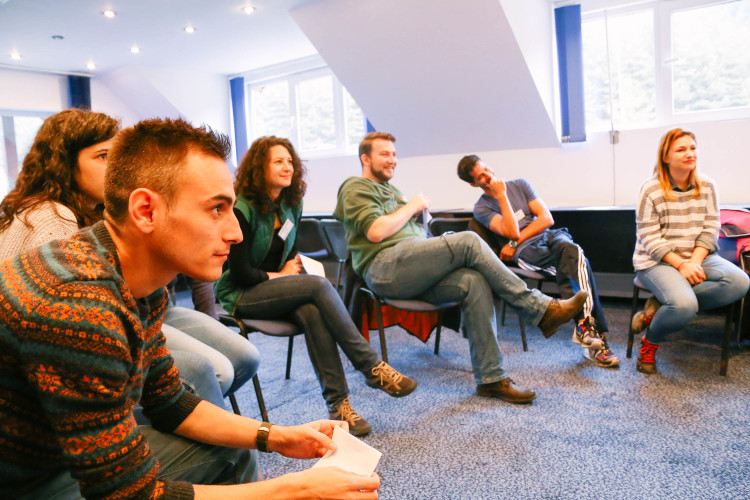
Companies need to do better. So I go to their meetings and ask them to be so.
I’ve long wondered how companies get away with behaviours such as paying their workers so little that they live below the poverty line whilst at the same time making huge profits for their shareholders. Or profiting from actions that cause climate change without having to pick up the costs for the damage to our environment.
As an outsider it is hard to wrap your head around how these seemingly simple moral actions (i.e. you should pay your workers a decent wage before turning a profit) are ignored by too many businesses. It is hard because the rules and regulations that dictate ‘acceptable’ business practice are complicated and there is still a reluctance to force businesses to make information on lots of these issues publicly available.
I find it frustrating that as a consumer I’ve no idea if when I buy something I am potentially contributing to modern-day slavery or climate change.
That’s why I volunteer with ShareAction as an AGM activist. An AGM or Annual General Meeting is a yearly gathering where the directors of a company present an annual report containing information about the company's performance and strategy. Being an AGM activist involves joining a company’s AGM and asking questions about their policies in relation to pay or their environmental impact. By asking a question at a formal meeting their response goes on a formal record and shows the Directors that at least one of their shareholders thinks they need to do better.
AGM meetings are also where the shareholders vote on resolutions on aspects of the company’s strategy, such as a commitment to meeting climate targets or becoming a Living Wage employer. Too often companies put out statements suggesting they’re committed to people and planet, but then vote in a manner that contradicts those statements, giving consumers a false perception of the company’s ‘human’ or ‘green’ credentials.
There are lots of ways you can put pressure on companies to do better if they do not share your values, such as boycotting their goods, but attending an AGM allows you to put forward your concerns to the people leading and investing in those organisations. As someone who doesn’t work in these worlds, I can’t imagine having access to industry leaders and influencers in any other context.
ShareAction, the organisation that set up the AGM activist group, is a charity that uses evidence and influence to transform aspects of our economy. Money makes the world go round (whether we like it or not). Therefore, to meaningfully tackle the biggest challenges we’re facing as a society, such as economic inequality and climate change, we need money to be redirected. By holding companies accountable at their AGM I feel like I am influencing what happens to their money.
Putting a question forward at an AGM sounds much more intimidating than it actually is as you’re given an outline of what to say, with evidence to back up the concern you’ll be raising. The pandemic means that lots of AGMs have been taking place online and one of the AGMs I joined was via a conference call. What struck me the most was that I was the only shareholder representative that raised these concerns, in fact I was the only stakeholder representative that asked a question. This showed me that without groups like ShareAction no one else is speaking up about these issues in these settings.
Of course I don’t think that AGM activism alone is going to fix the problem. We need the Government to take action and we need consumer buy-in. But it is definitely an important part of the solution. In recent years massive companies have been lambasted in the news because resolutions agreed at their AGM fly in the face of their public statements. If these AGMs happen without scrutiny, companies will continue to put their short-term profits over, well, over pretty much anything else.
Asking companies to do better is easier than you may think, why not give it a go and get in touch with ShareAction?




